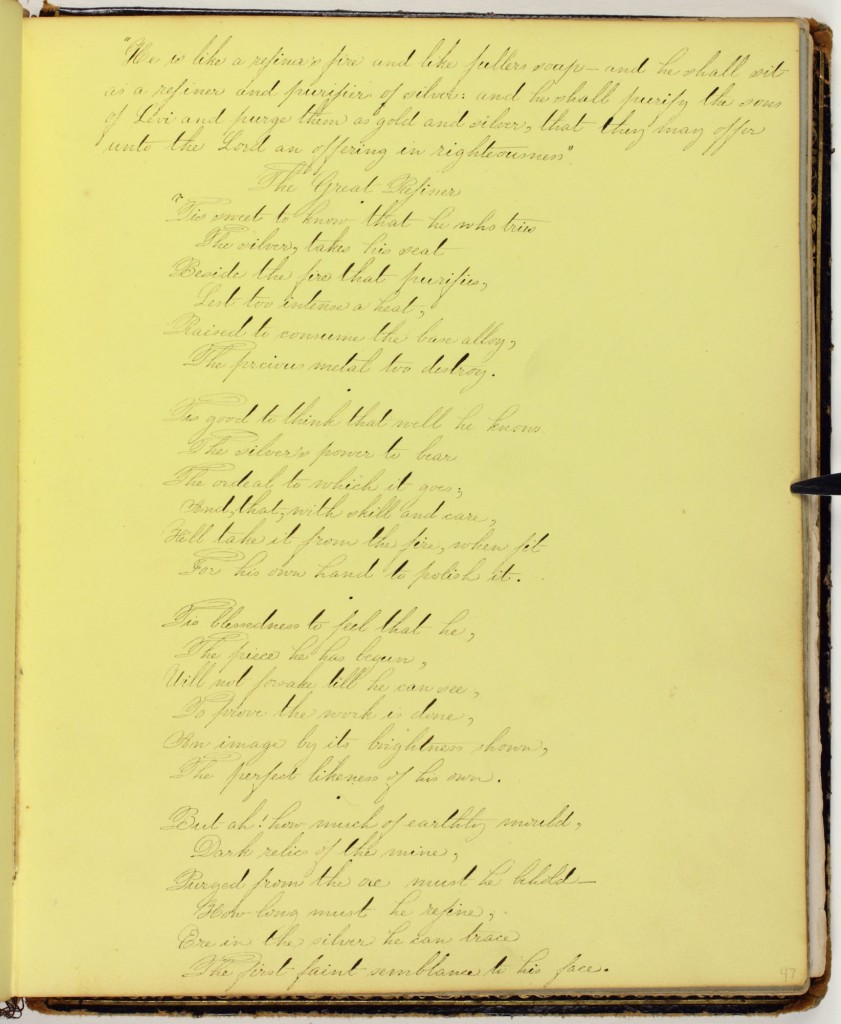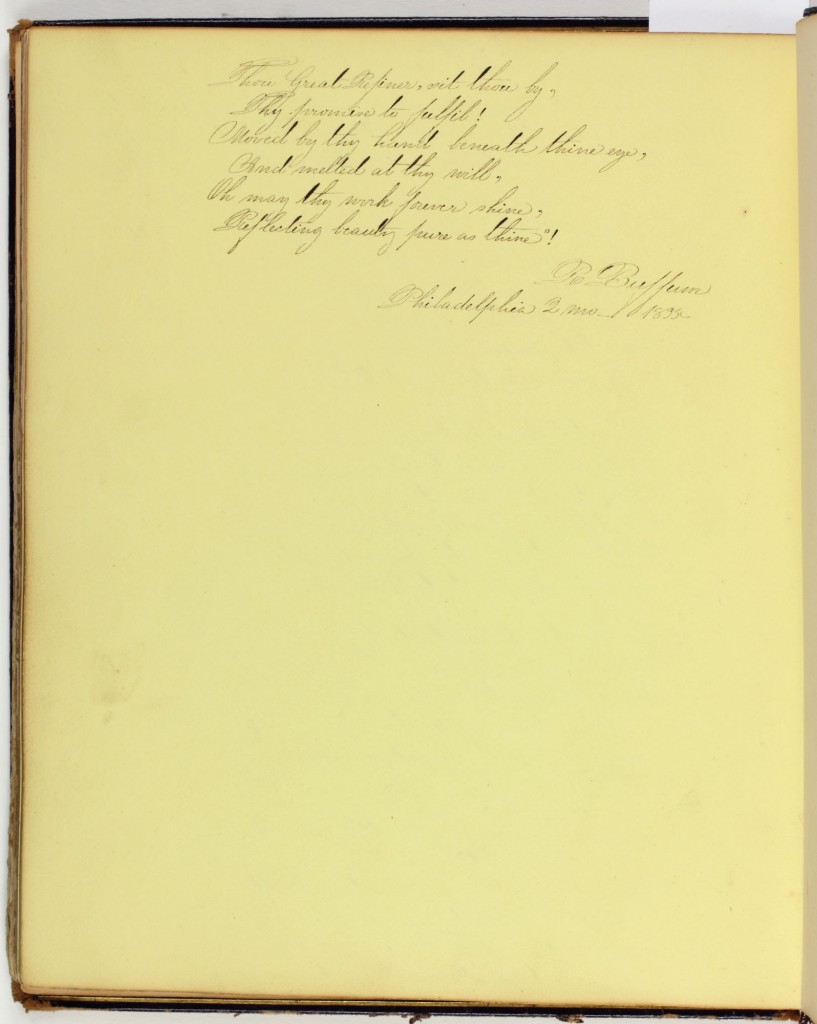Preface (3)
6|7|8|9|10|11-12|13|14|15|16|17|18|19|20|21|22|23|24|25|26|28|30|31|32|33
34|35|36|39|42|44|47|49|51|52|53|54|55|56|57|59|62| 63|64-68|70|73|75
“He is like a refiner’s fire and like fullers soap—and he shall sit as a refiner and purifier of silver: and he shall purify the sons of Levi and purge them as gold and silver, that they may offer unto the Lord an offering in righteousness”
The Great Refiner
“Tis sweet to know that he who tries
the silver, takes his seat
Beside the fire that purifies,
Lest too intense a heat,
Raised to consume the base alloy,
The precious metal too destroy.
Tis good to think that well he knows
The silver’s power to bear
The ordeal to which it goes;
And, that, with skill and care,
He’ll take it from the fire, when fit
For his own hand to polish it.
Tis blessedness to feel that he,
The piece he has begun,
Will not forsake till he can see,
To prove the work is done,
An image by its brightness shown,
The perfect likeness of his own.
But ah! How much of earthly mould,
Dark relic of the mine,
Purged from the ore must he behold—
How long he must refine,
Ere in the silver he can trace
The first faint semblance to his face.
Page 47 (Reverse)
Thou Great Refiner, sit thou by,
Thy promise to fulfil!
Moved by thy hand beneath thine eye,
And melted at thy will,
Oh may thy work forever shine,
Reflecting beauty pure as thine”!
R Buffum
Philadelphia 2 Mo __ 1835
This contribution by Philadelphia gentlewoman Rebecca Buffum uses religious parable to poetically describe how all people—black or white—are made in the likeness and image of God. She contextualizes the poem with references to Bible passage Malachi 3 that compares God to a metal refiner. In the passage, God accepts humans into heaven and refines them into pure and special precious metals. Buffum’s poem references the passage when she describes how God purifies the sin—“dark relic of the mine”—which is accrued in a human’s “earthly mould.” It emphasizes that all people are made in the likeness of God, “reflecting beauty pure as thine!” Buffum’s use of light and dark terminology like “dark,”” shine,” “faint” corresponds to other predominant themes in the album referencing slavery and skin color.
Page 47: Selected from Hannah F. Gould’s poem in The Friend: a Religious and Literary Journal 6 (Philadelphia: Adam Waldie, 1833), 200.


